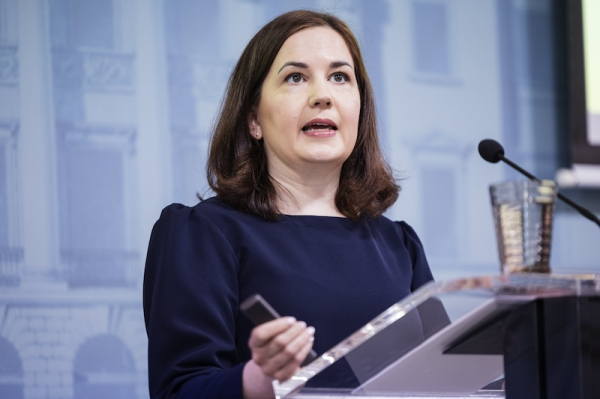
Compensation for egg donors will rise from €250 to €350 starting January 2026, by desicion of the Ministry of Social Affairs and Health. Photo: Roni Rekomaa / Lehtikuva
- Next Article Business partner suspected in Espoo millionaire’s murder
The Finnish government will increase compensation for egg donors from €250 to €350 starting January 2026, as part of a broader effort to support fertility treatment and reproductive health services.
The decision, announced by the Ministry of Social Affairs and Health, was approved within the government’s mid-term budget framework. The change comes as Finland continues to grapple with historically low birth rates.
The infertility support organisation Simpukka welcomed the move but said it falls short of addressing wider challenges in fertility treatment involving donated reproductive cells.
In its statement, Simpukka thanked the government for acknowledging the role of donors but urged further action. The group called for targeted investment in treatments involving donor gametes, which are becoming an increasingly important part of the national fertility landscape.
Official statistics show that while Finland’s overall birth rate has declined to record lows, the number of children conceived using donated reproductive cells is rising. In 2023, 842 children were conceived through donor-assisted treatments, accounting for nearly one-third of all conceptions via fertility treatment.
Alongside the donor compensation increase, the government will also boost support services for women who experience miscarriage or suffer from fear of childbirth. These additions are part of a broader package aimed at improving reproductive healthcare outcomes.
The updated compensation for egg donors is intended to better reflect the time, effort, and medical procedures involved in donation. Egg retrieval typically requires hormonal treatments and a surgical procedure, which can carry physical and emotional demands.
Fertility professionals and advocacy groups have repeatedly highlighted donor shortages as a barrier to timely access to treatment. Clinics in Finland have also faced increased demand for donor-assisted fertility services in recent years.
While the legislative change is expected to improve donor availability, campaigners stress that ongoing support, awareness, and investment are needed to ensure access and equity in fertility care.
HT
- Next Article Business partner suspected in Espoo millionaire’s murder
Source: www.helsinkitimes.fi
